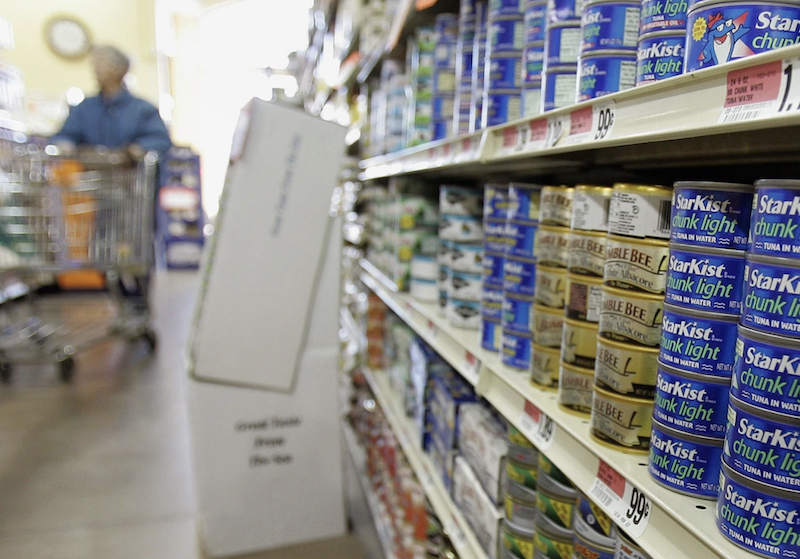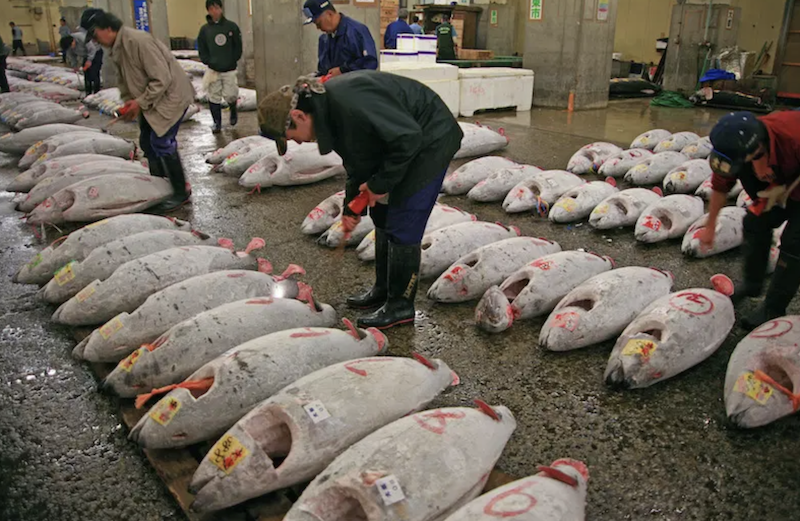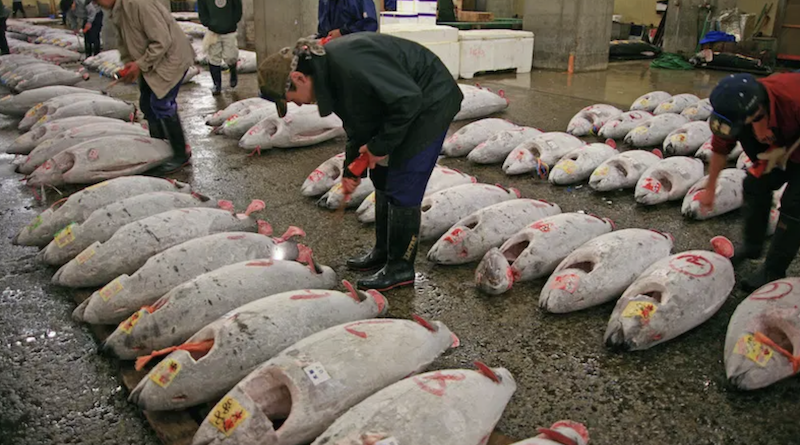None of the tuna retailers in the United States passed the sustainability and human rights tests.
None of the tuna retailers in the United States passed the sustainability and human rights tests.
Tuna production is at an all-time high. Part of this increase can be attributed to it being viewed as an environmentally friendly alternative to other animal proteins for people looking to reduce their meat consumption.
However, according to a new report by the environmental NGO Greenpeace,” High cost for cheap tuna“, despite significant progress, U.S. grocery chains still have a long way to go in addressing serious environmental and human rights concerns in their tuna sourcing.
In accordance with the report, the United States is the world’s second-largest tuna importer, and its retailers utilize significant clout in the $42 billion global tuna sector. Since 2008, Greenpeace has ranked US seafood retailers based on sustainability criteria. This is the second report of its kind to include human rights considerations.
The report’s authors created a scorecard for the 16 largest U.S. grocery retailers based on their tuna sourcing practices. To accomplish this, they distributed a survey, which 11 of the retailers completed
and returned, and relied on publicly available data for the remaining five. They assigned percentage academic results to retailers based on 39 questions grouped into six categories: purchasing policy, record keeping, advocacy and initiatives, human rights and labor protections, current sourcing, and customer education and labeling.

Retailers with high ratings are still rated too low.
The report praised ALDI for its “comprehensive, publicly available seafood and human rights policies” and explicit advocacy “for a living wage for workers in its supply chain.” The limited scope of its grievance mechanisms and the fact that its corporate responsibility supplier evaluation program is still in development lowered its score.
Southeastern Grocers, the parent company of Fresco y Más, Harveys Supermarket, and Winn-Dixie, received the lowest human rights rating.
Transshipment is the practice of offloading a fishing vessel’s catch onto other boats that deliver it to shore. It is frequently associated with illegal, unreported, and unregulated (IUU) fishing, and because it allows fishing vessels to stay at sea for extended periods of time, it also increases the risk of human and labor rights violations in supply chains.
Amazon-owned Whole Foods Market, the largest U.S. chain specializing in “natural” and organic foods, received the highest score of 75% for sustainability. ALDI came in second with 70%, bringing its total overall score to 62%, the first and only passing grade since the addition of human rights factors to the rankings last year. The authors lauded Whole Foods’ stringent traceability and sourcing standards, including its pledge to sell only pole-and-line and hand-line-caught canned tuna. These methods reduce bycatch and overfishing more than other methods, and they benefit human rights because vessels are smaller and tend to work along the coast rather than in the open ocean, resulting in shorter periods at sea and more localized employment.
Costco was ranked second-to-last in terms of sustainability, with a score of 32%. Critics focused on its “vague” sourcing and seafood sustainability policies, as well as its lack of a transshipment policy.
Should we phaseout transshipment
According to Greenpeace research, this frequently results in tuna products with suspicious environmental and social qualifications being available on supermarket shelves in the United States, despite grocery chains’ assurances to the contrary. According to the news release, Greenpeace linked tuna caught by vessels that supply the ubiquitous canned-tuna brand Bumble Bee to forced labor, human trafficking, and IUU fishing practices in 2020, and then traced the tuna to a Kroger-owned Harris Teeter in Arlington, Virginia.
The report calls for increased tracking and tracing and openness in the tuna supply chain. It requests that retailers follow the example of employee-owned supermarket chain Hy-Vee (which ranked fourth overall in the report) and make a complete list of their supplying vessels public. It also wants to ban transshipment.
Von Keller Blog is an informational website with public news, company insights and reports of our companies events, news, press and blogging. Let’s Chat.


